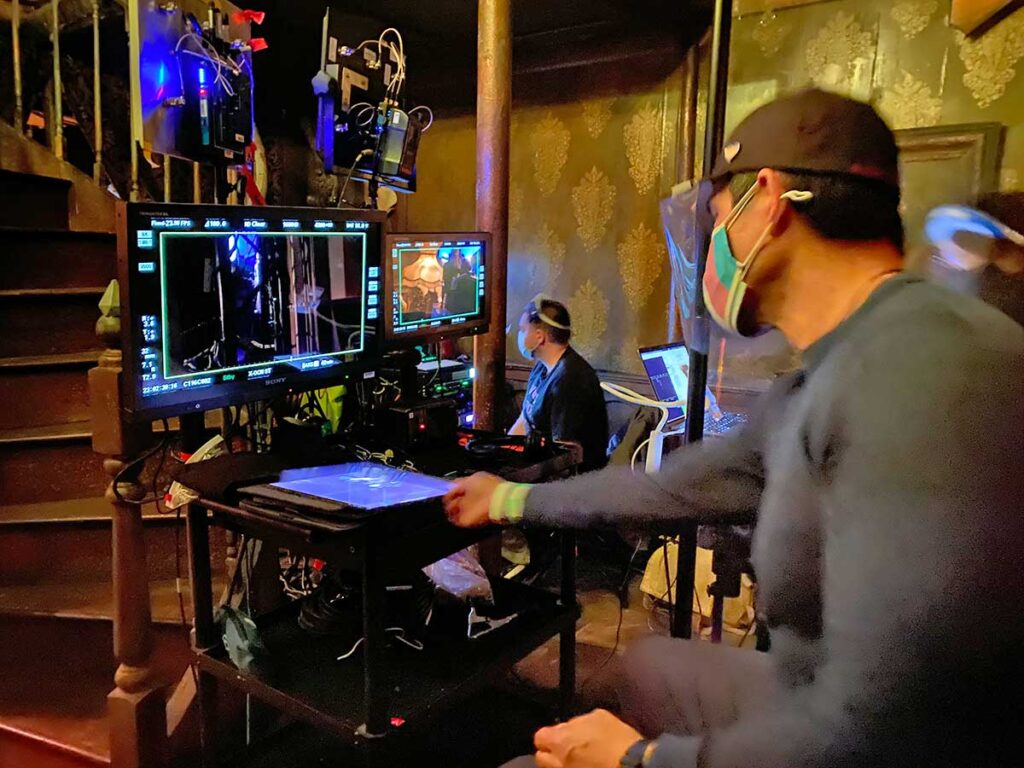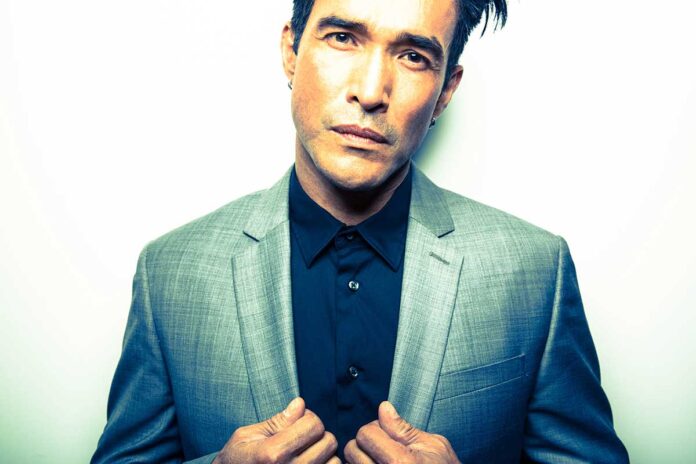When Tig Fong was growing up in a small city on the east coast of Canada, they had two main role models — Bruce Lee and Jet Li.
At a time in their life when they experienced racial violence, seeing men that looked like them fighting on screen was exciting. Against their parent’s wishes, Fong began to pay for their own martial arts lessons when they were a teenager.
“It was a desire to be able to defend myself to some regard through physicality, through violence,” Fong said. “And as I learned these skills I did apply them in real life. I wasn’t afraid to do that.”
Fong maintained their passion years later and, despite their parents’ wishes, dropped out of medical school to become a stuntman. Now, after years of performing, they are the first and only queer person of color to become a stunt coordinator in Canada — working on projects like NBC’s ‘The Lost Symbol,’ FX’s ‘What We Do In The Shadows’ and Amazon’s ‘The Boys.’
Yet, despite their eventual success, Fong struggled to break into the industry at first. There were very little roles for an Asian male performer, and after kicking off his career in 1991 with “Kung Fu: The Legend Continues,” they tried to find whatever work they could.
One particularly dangerous project during their early career, Fong laughed as they recalled, included crashing through bamboo scaffolding thirty feet off the ground with only dirty, stained mattresses waiting to catch them.
“I was younger, I’m just like ‘what the hell,’” they said. “Stunt people are unusual people, some of them have a thrill drive, I don’t have that, some of them have a death drive, and I think I did have that. I didn’t really care what happened to me so I didn’t really worry. That’s changed for me now, I have a much better sense of self preservation.”
Still, their racial identity made it difficult for them to find work — a trend reflected in Hollywood even today. When they did find work, too, many of those roles were stereotypical Asian roles.
According to a recent study by the USC Annenberg Inclusion Initiative, just 3.4% of the 1,300 high-grossing films surveyed from 2007 to 2019 either had or featured API leads or co-leads — and a third of those roles went solely to Dwayne Johnson.
As Fong’s racial identity continued to cause them to struggle for roles, they also held off on identifying as queer to the stunt community. From the time they had hit puberty, they knew of their sexuality, but revealing it would have been a “deficit” that prevented them even further from getting roles.
“Given that the stunt community is founded on chauvinistic, toxic masculine ideals, being a queer man wouldn’t be something that would make me attractive in terms of hiring,” they said.
After transitioning to being a fight coordinator and then a stunt coordinator in the last several years, a lot has changed.
Though at first they only wanted to do the stunts themself rather than coordinate them, being behind the camera has Fong to be appreciated for their skill set rather than their skin color. In this role, they are in charge of hiring talent, planning scenes for the director’s approval and working with the actors on the day of filming.

“There is more creative control on this side of the camera,” they added.
Recently, too, they decided to publicly come out to the community. With only 1% openly identifying as LGBTQ in the stunt community, they realized that the only way to promote others to come out was to be bold and do so themself.
“There’s real power in representation,” Fong said. “I felt that if I came out, that even if my presence wasn’t enough for people who are closeted within the community to come out, they would at least know that they belonged.”
Now, Fong has continued their efforts to help aid inclusion in the stunt community. Working with their local union’s new diversity committee, they have asked for the union to use them as a resource to mentor any BIPOC or LGBTQ performers in the union who are interested in stunts.
“We are all working at removing the barriers to entry,” Fong said. “And even promoting and taking an active part in bringing in these people.”
In their own career, too, they are taking steps to promote inclusion.
While they are currently working as a second-unit director in ‘What We Do In the Shadows’ — and have even gotten to direct their own episode — Fong hopes to soon transition fully into directing.
Moreover, though, they want to work with LGBTQ writers to direct shows and movies that tell the stories of traditionally marginalized groups.
“Those are the stories I want to tell,” they said. “That’s what I look forward to.”
The film industry, Fong said, is making great strides with inclusivity — and they know that progress will continue.
“I really believe the future is queer,” they said.

